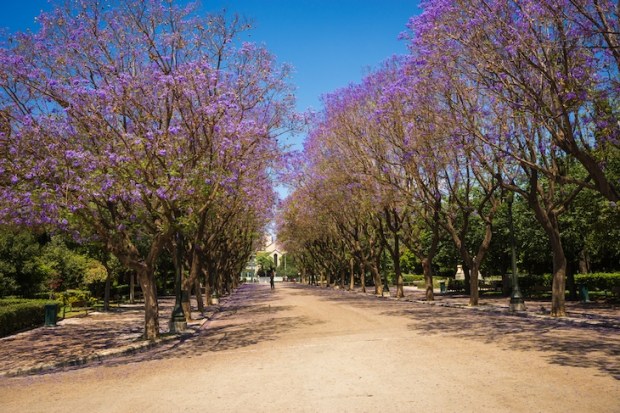Everyone’s doing it, so I might as well jump in too. After all, I knew so many of the people involved, including JFK and his widow Jackie, and — sorry for the name-drop — even the actor Rob Lowe who plays the slain president in the film that’s coming out for the 50th anniversary of JFK’s assassination. I met Senator John Kennedy one year before he became president, at a party thrown by Alice Topping, a society dame of the time. The first and lasting impression was of his charisma and good looks. He was 39, the room was full of beautiful women, but he did take a minute or two to ask me about school and my plans for the future. It was not any different from most politicians’ chatter, but with a difference. None of that greasy Bill Clinton stuff, more man-to-man chit-chat with lots of jokes about our wandering eyes. I never saw him in person again.
Like everyone else alive and out of a crib on 22 November 1963, I remember it well. I was going to 21 for lunch, and 52nd Street traffic had stopped while people listened to car radios. We all know the rest. What people were not aware of was the unquestionable sleight of hand worked by Jackie while arranging the details of the funeral, having even rehearsed her little boy’s salute as his father’s cortège passed. Despite her Medea-like rage and grief, she went over the list of those invited to attend and added her personal favourites, including Ari Onassis and J.D. Salinger. The widow quickly put some distance between herself and the rowdy Irish bunch of her husband’s brood. Except for Bobby Kennedy, who was perceived as the realist to JFK’s romantic, but who in reality was the romantic to the realist his elder brother was. Jackie wanted centre stage and got it in spades. Five years later she became Mrs Onassis and that’s when the high life began.
Fifty years down the road, what I find annoying are the conspiracy theories that have never really ceased. One graceful act Jackie never got credit for was the letter in blue stationery she wrote to the widow of Officer Tippit, the policeman Oswald murdered in cold blood by pumping four bullets into him before going to the movie house where he was finally arrested. She wrote how she worried that in their grief for the president, Americans might forget the officer’s death in the line of duty, but that she (Jackie) never would.
That’s as graceful and profoundly moving as it gets. The conspiracy theorists were mostly motivated by you-know-what. Mind you, there were so many loose ends: exit wounds that could not have come from the book depository, unexplained actions once the president had been taken to hospital. Still, I am among those who see a sole assassin who got lucky, and I am amazed that Onassis, Richard Nixon and LBJ were not dragged before the courts as potential conspirators. (A fabulist by the name of Evans, a Brit of course, blamed Onassis for JFK’s murder 40 years after the fact, and managed to sell a hell of a lot of bull, sorry books.)
The most farcical was the one about J. Edgar Hoover, LBJ and Richard Nixon in a Texas oilman’s house the night before exchanging conspiratorial glances when the TV showed Kennedy being cheered. Norman Mailer, an extremely astute judge of character, commented back in 1960 on JFK’s detachment, coolness and enigmatic lack of brusqueness. Jackie made sure the history police held firm, with Richard Goodwin, Arthur Schlesinger and Ted Sorensen constructing the Camelot myth.
How good or bad was Kennedy as president? Let’s put it this way: he was a reader, which meant he knew history, and he had read The Guns of August three months before the Cuban crisis. He told his brother Bobby that he wouldn’t be the one who some historian would write a comparable book about. That is, how things could get out of hand from nothing in October 1962. Pro-Kennedy historians insist he would never have gotten trapped in Vietnam. In the wake of his failure in the Bay of Pigs, Kennedy became weary of military advice. The great Greek historian Taki begs to differ.
JFK had won the closest election in history up to then by insisting there was a missile gap in relation to the Soviet Union. He evoked 1812, the last time foreign enemy forces had attacked continental United States. But that was balderdash. The Soviets had 36 intercontinental ballistic missiles instead of the rumoured 500; Uncle Sam had 400. His ‘pay any price, bear any burden’ inaugural address put the world on notice that the good Uncle was ready to fight overseas for his empire. Kennedy was at the helm when the ‘Strategic Hamlets’ programme in Vietnam saw hundreds of thousands of peasants deracinated in return for cash in order to deprive the Viet Cong of safe havens. (The cash was stolen by the Vietnamese rulers.) Kennedy blamed Diem rather than himself, agreed to the coup that killed the Vietnamese strongman with a $40,000 payment, and was himself assassinated three months later. These are facts, the rest is guesswork. Kennedy installed Jupiter missiles in Turkey threatening the Soviet heartland; then when the Soviets did the same in Cuba he cried foul. No, he was an insecure president with great charisma and personal courage, but his greatness lies in comparison to the awfulness of LBJ and George W. Bush.







Comments